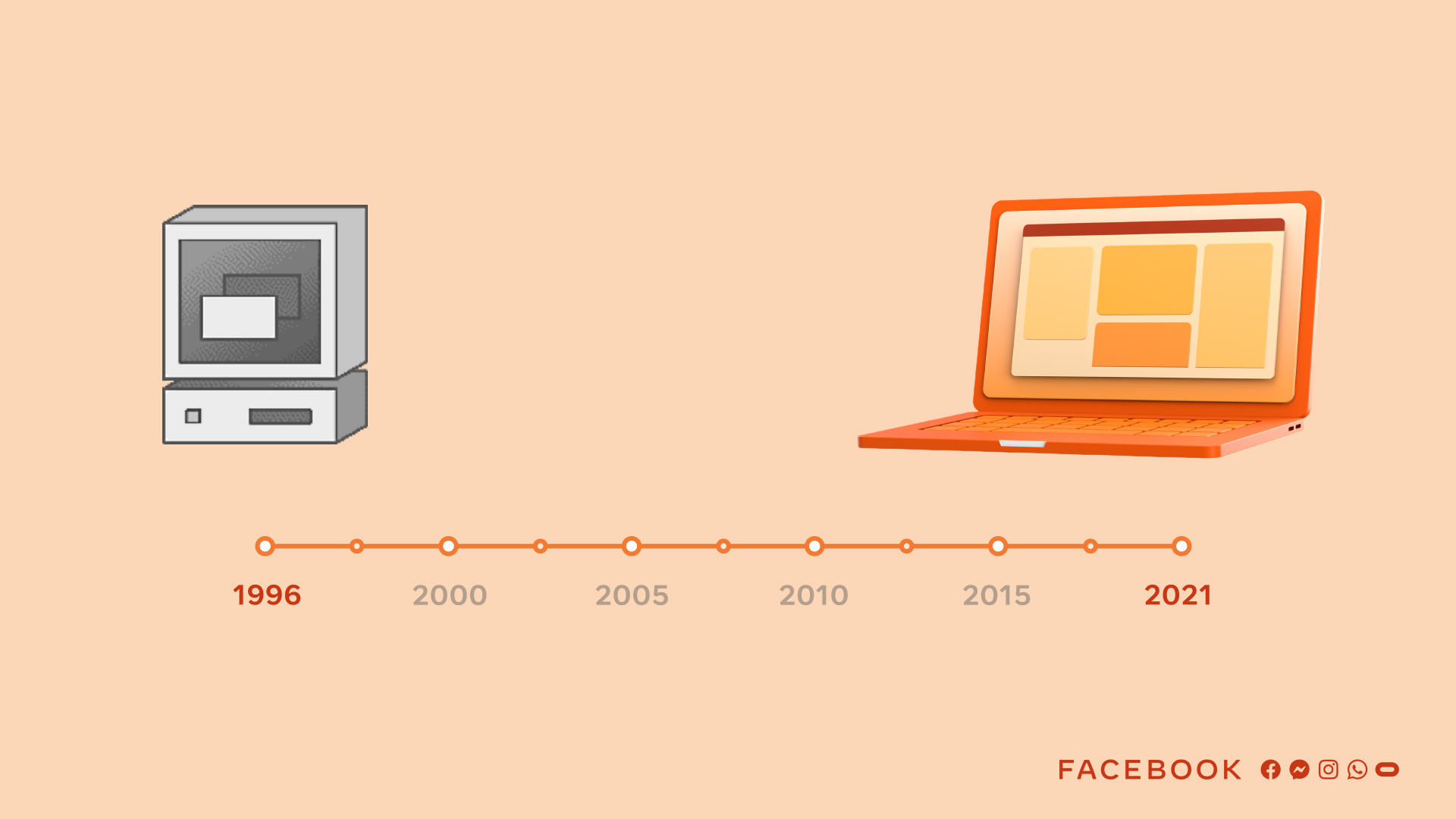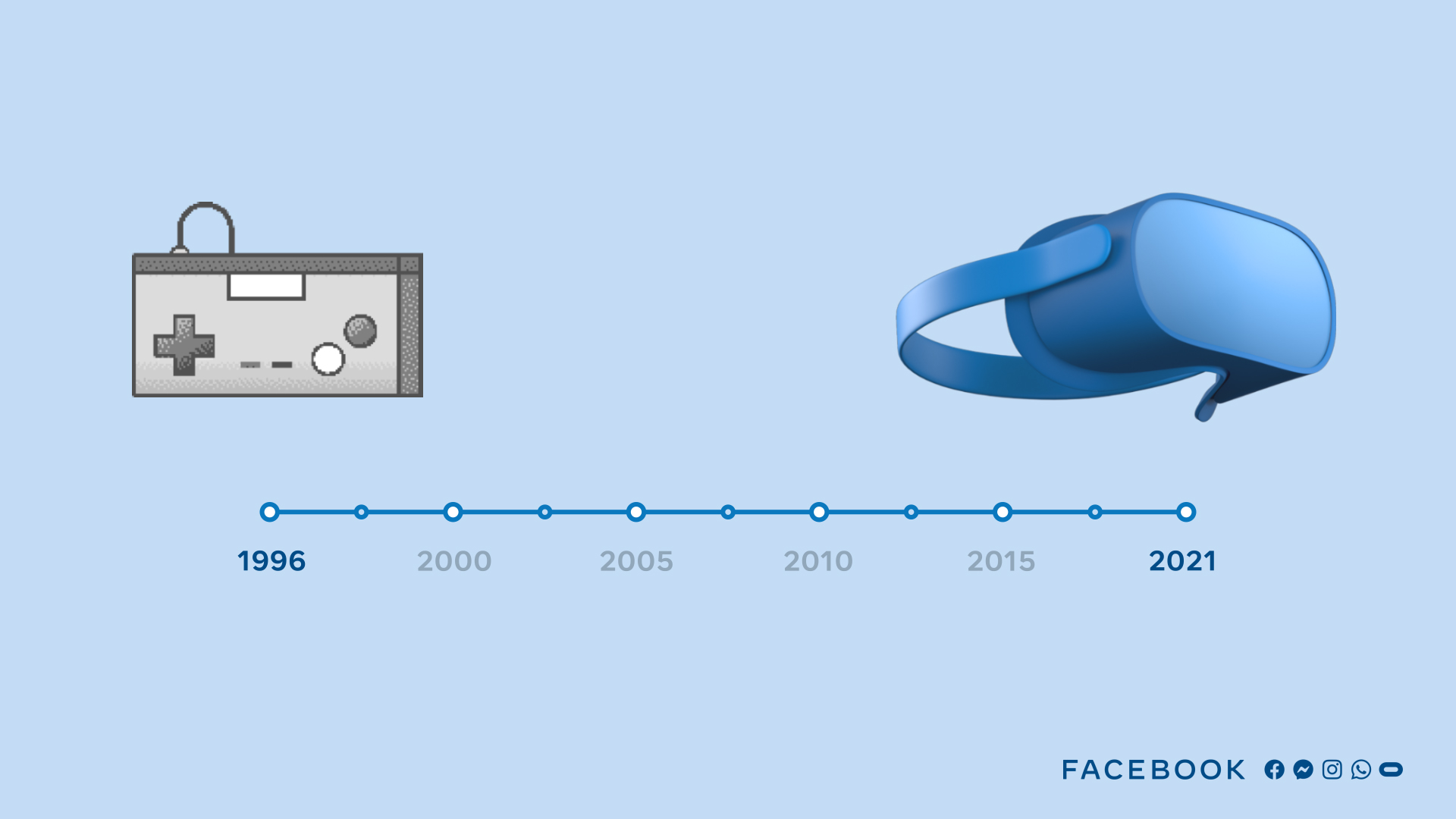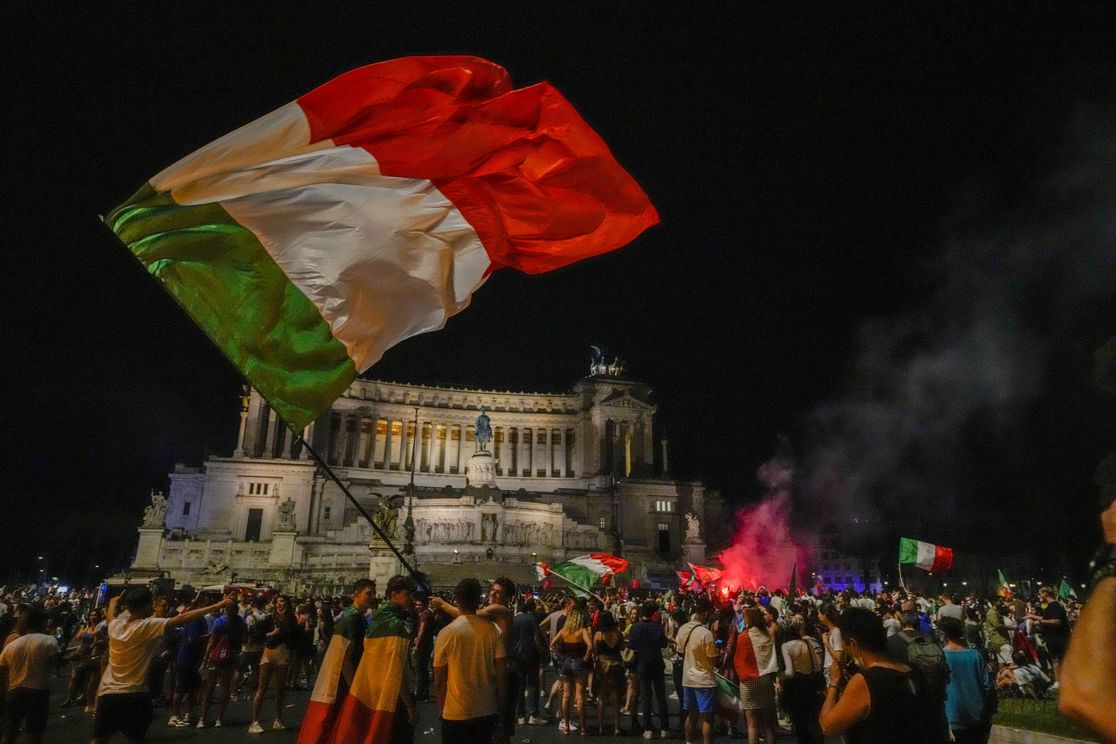| |
| |
| |
| Presented By Facebook |
| |
| Axios AM |
| By Mike Allen ·Jul 12, 2021 |
| Good Monday morning! Smart Brevity™ count: 1,489 words ... 5½ minutes. Edited by Zachary Basu. ⚡ Bulletin: Army Gen. Scott Miller, the top U.S. general in Afghanistan, steps down today, marking a symbolic end to 20 years of war. —WashPost |
| |
| |
| 1 big thing: GOP pushes new "civil right" |
 |
|
| Illustration: Aïda Amer/Axios |
| |
| State Republican lawmakers around the country are pushing bills to give unvaccinated people the same protections as those surrounding race, gender and religion, Axios' Caitlin Owens reports. - Some state lawmakers are trying to make it illegal for employers, governments or private businesses to treat unvaccinated people any differently than vaccinated people, using the same language found in federal civil rights law.
Why it matters: This is how deeply COVID vaccine resistance has burrowed in the political psyche. Vax status is now a marker of identity. Well-known GOP figures have recently escalated their rhetoric about the vaccination effort, comparing it to Nazi Germany and apartheid. - At the state level, there's more bite to the bark. Many Republican-led states have enacted some kind of restriction on vaccine mandates or vaccine "passports."
- "When we think about the normal discrimination statutes … we have protected classes based on something that is sort of inherent to you, with religion maybe being the one that is a choice," said Lowell Pearson, a managing partner at Husch Blackwell, which has been tracking the bills. "But vaccination status you certainly can control."
Between the lines: The states with restrictions on vaccine requirements tend to have lower vaccination rates than those without such laws. - Most of the measures are full of loopholes or have limited application.
- Vaccine requirements aren't very popular among employers. But they're common among private businesses to have different rules for vaccinated and unvaccinated employees or customers.
Zoom in: Montana has made it illegal to "discriminate" on the basis of vaccine status, with some exceptions within the health care sector. - The law prohibits businesses, governmental entities and places of "public accommodation" — like grocery stores, hotels or restaurants — from refusing to serve or withholding goods from anyone based on their vaccination status or whether they have an "immunity passport."
Other state laws are generally more limited: - Alabama law prevents schools and universities from requiring coronavirus vaccines, prohibits vaccination as a condition of receiving government services, and bans businesses from refusing to serve someone based on their vaccine status.
What's next: Legislation similar to Montana's has been introduced all over the country. |
    |
| |
| |
| 2. Branson opens new space age |
 |
|
| Photo: Virgin Galactic via Reuters |
| |
| Billionaire Richard Branson, 70, who floated in zero gravity (above) yesterday as he made a live-streamed trip to the edge of space, said aboard his Virgin Galactic winged rocket ship: To all you kids down there, I was once a child with a dream looking up to the stars. Now, I'm an adult in a spaceship, with lots of other wonderful adults, looking down to our beautiful, beautiful Earth. To the next generation of dreamers, if we can do this, just imagine what you can do. At a news conference afterward, he had this advice for budding entrepreneurs: Every time we start a new company, I will immerse myself and experience it. I will have a notebook, and this is something you kids should think about. ... I've written down 30 or 40 little things that will make the next experience for the next person who goes to space with us that much better. 📷 See 2 more photos. |
    |
| |
| |
| 3. Cuba has biggest democratic protests in decades |
 |
|
| People demonstrate against the government in Havana yesterday. Photo: Yamil Lage/AFP via Getty Images |
| |
| Chanting "freedom" and calling for President Miguel Díaz-Canel to step down, thousands of Cubans joined street protests nationwide yesterday in the biggest anti-government demonstrations on the Communist-run island in decades, Reuters reports. - The protests, the largest since 1994, erupted amid a COVID surge, with people angry over shortages of food, fuel and other basic goods.
Special forces Jeeps, with machine guns mounted on the back, were seen throughout the capital. A man is arrested by plainclothes police during a demonstration against the government in Havana yesterday. Photo: Yamil Lage/AFP via Getty Images 📷 See 3 more photos. |
    |
| |
| |
| A message from Facebook |
| The internet has changed a lot since 1996 - internet regulations should too |
| |
 |
| |
| It's been 25 years since comprehensive internet regulations passed. See why we support updated regulations on key issues, including: - Protecting people's privacy.
- Enabling safe and easy data portability between platforms.
- Preventing election interference.
- Reforming Section 230.
|
| |
| |
| 4. Pic du jour: Carters' 75th |
 |
|
| Photo John Bazemore/AP |
| |
| Amy Carter (left), age 53, raises a glass to toast her parents, former President Jimmy Carter and former first lady Rosalynn Carter, as they celebrate their 75th wedding anniversary with 300 people in Plains, Ga. - They're the longest-married presidential couple. Jimmy Carter, 96, is the longest-lived president. Rosalynn Carter is 93. —AP
|
    |
| |
| |
| 5. Dodging Big Tech's "kill zone" |
 |
|
| Illustration: Annelise Capossela/Axios |
| |
| President Biden's executive order targeting big business is the most ambitious effort yet to clear space for challengers to Big Tech — but faces daunting odds, Axios' Kim Hart writes in her "Tech Agenda" column. Tech giants have had a reputation for being friendly to entrepreneurs: Small companies depend on the platforms to reach customers and access necessities — cloud storage, payment processing, app stores. - But the "kill zone" is what venture capitalists call areas they won't fund because big players have an edge, or could easily squash a startup — or buy it on the cheap and build the business themselves.
What to watch: In a joint statement, the DOJ and FTC said Friday that they'll take a hard look at merger guidelines "to determine whether they are overly permissive." |
    |
| |
| |
| 6. First look: Biden urges local officials to use COVID funds to fight crime |
| President Biden exits Marine One on the South Lawn last night: Photo: Oliver Contreras/Sipa USA via Getty Images With crime surging around the country, President Biden plans to tell local officials to use some of their COVID relief funds to bolster their police departments, Axios' Hans Nichols reports. - That guidance is spelled out in a White House memo obtained by Axios ahead of Biden's meeting today with law enforcement and elected officials from around the country.
Among those attending will be Eric Adams, New York City's Democratic mayoral nominee and former police captain, who's openly critical of his own party. - Chicago Police superintendent David O'Neal Brown and D.C. Mayor Muriel Bowser will also be among the participants.
The memo's subject line shows how the White House is seeking to position itself: "How Local and State Government Can — and Should — Use the President's Gun Crime Reduction Strategy and Historic Rescue Plan Funding to Improve Public Safety." - It was written by Domestic Policy Council director Susan Rice; Gene Sperling, who's monitoring the $1.9 trillion in COVID relief spending; and Julie Rodriguez, the director of the White House Office of Intergovernmental Affairs.
Share this story. ... Read the memo. |
    |
| |
| |
| 7. Most unvaccinated people have low incomes |
 More than half of unvaccinated Americans live in households that make less than $50,000 annually, Axios' Bob Herman writes from census data. - Almost two-thirds of unvaccinated people who make less than $50,000 still say they either "definitely" or "probably" will get the vaccine.
Making it easier for the working poor to get the COVID shot could help boost vaccination rates. - Vaccination has been politicized, but juggling work schedules and child care could be bigger factors than politics.
- Workers also may worry about having to take unpaid time off if they come down with any vaccine side effects.
What to watch: Whether more employers provide rewards to vax. |
    |
| |
| |
| 8. BlackRock CEO sees "historic opportunity" in climate transition |
 |
|
| Larry Fink speaks to the Bloomberg Green Summit in April. Photo: Daniel Acker/Bloomberg via Getty Images |
| |
| BlackRock CEO Larry Fink told G20 finance ministers yesterday at The Venice International Conference on Climate that faster progress on climate requires "attracting private capital for technological innovation." - "Right now, almost every government — as we're seeing with the U.S. infrastructure bill — is relying on deficit spending," Fink said. "But deficit spending has its limits, especially when governments are also spending on the physical impacts of climate change."
- "Approaches that fail to mobilize private capital are not going to be enough to get the job done."
Fink said BlackRock's research found the transition to a low-carbon economy "represents an investment opportunity of at least $50 trillion": - "While these challenges on the journey to net zero are massive, I remain an optimist and do believe that the climate transition presents a historic opportunity."
Go deeper. |
    |
| |
| |
| 9. ⚽ Racist response to England's penalty curse |
Cover: The Times of London Italy's national soccer team defeated England in a dramatic 3-2 penalty shootout to claim the European Championship yesterday, sinking The Three Lions' best chance for an international trophy in 55 years. - Three young Black players who missed penalty kicks before the home crowd at Wembley Stadium were subjected to racist abuse on social media after the game, drawing condemnation from the English Football Association and the British government.
The England squad had taken a knee before games "to signal its support for an end to racial inequality, and the young, multi-ethnic squad won the hearts of the soccer-mad country before the shootout failure brought out all-too-familiar messages of hate," AP reports. Italy's fans celebrate in Rome this morning. Photo: Alessandra Tarantino/AP |
    |
| |
| |
| 10. 1 film thing: "Black Widow" win for cinema + streaming |
 |
|
| Photo: Disney |
| |
| Disney's Marvel blockbuster, "Black Widow," set a COVID-era box office record this weekend, showing that simultaneous streaming and cinema releases will live on, Axios Media Trends expert Sara Fischer writes. - Why it matters: Black Widow proves that with the right movie, streaming releases can bring in a lot of money for big movie studios.
The big picture: The streaming boom forced studios to experiment with shorter theatrical windows, and make movies available sooner on their own streaming services. - Universal said last week that beginning next year, all of its film content will become available to fans exclusively on Peacock, the streaming service owned by its parent company Comcast, within four months of debuting in theaters.
Share this story. |
    |
| |
| |
| A message from Facebook |
| Why Facebook supports updated internet regulations |
| |
 |
| |
| 2021 is the 25th anniversary of the Telecommunications Act of 1996, the last major update to internet regulation. It's time for an update to set clear rules for addressing today's toughest challenges. See how we're taking action on key issues and why we support updated internet regulations. |
| |
| 📬 Please invite your friends, family, colleagues to sign up here for Axios AM and Axios PM. |
 | | It'll help you deliver employee communications more effectively. | | |
















No comments:
Post a Comment